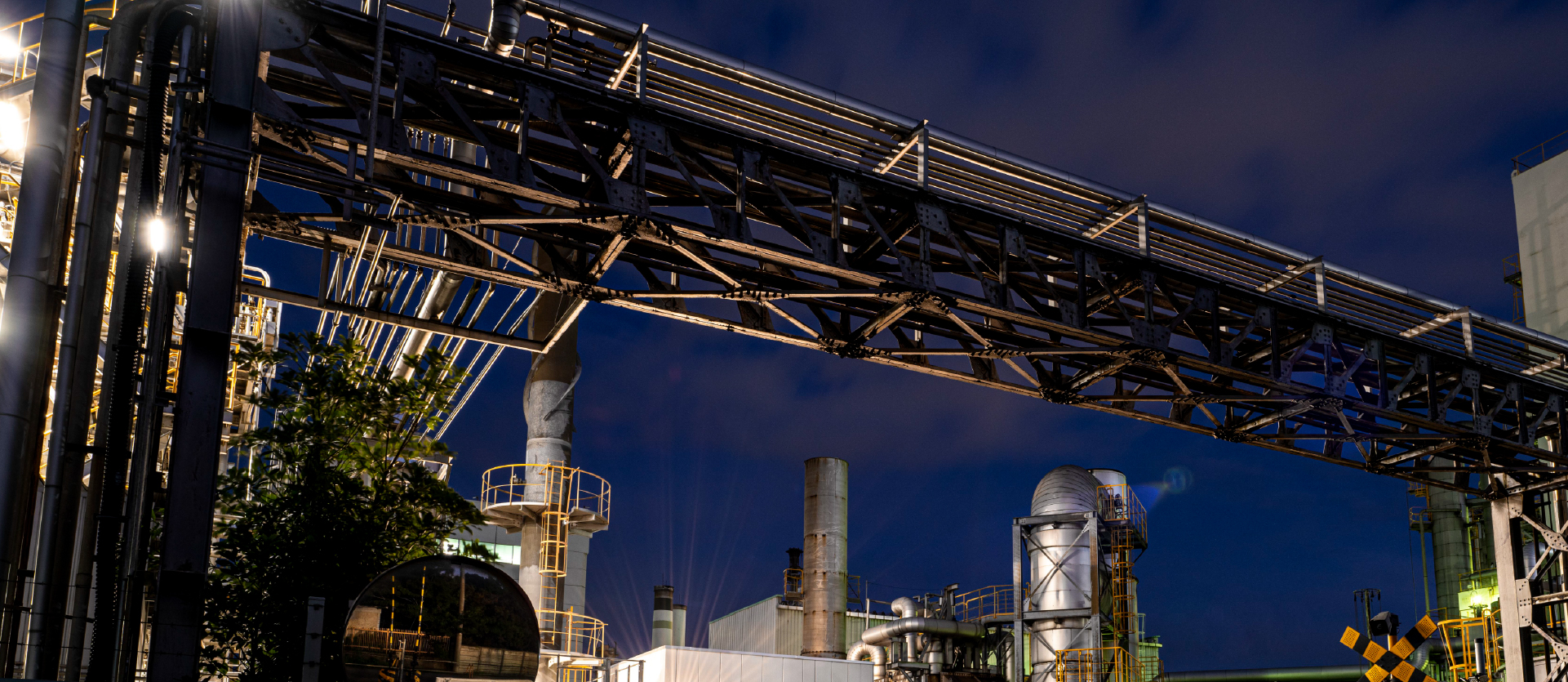Executive Summary
| Event | Date | Content |
| Bill | September 9, 2025 | The Senate approved a bill to reform of the metropolitan public transport service. |
| Start Orders | August 26, 2025 | The Ministry of Public Works and Infrastructure (“MOPC”) issued commencement orders for the construction of sanitary sewer systems in 3 cities as part of a sanitation program. Value of the project: USD 40 million. |
| Call for Bids | September 12, 2025 | The National Directorate of Public Procurement (“DNCP”) published on its official website an International Public Tender (“LPI”) for the paving of Route PY12 (Cruce Colonia Margarita – Itakyry section), convened by the MOPC. |
| Bill | July 24, 2025 | The Executive Branch submitted a bill to merge the Ministry of Industry and Commerce, the Vice Ministry of Mines and Energy and the National Secretariat of Tourism into the new Ministry of Industry, Commerce, Tourism, Mines and Energy. |
| Project Socialization | August 19, 2025 | The MOPC launched the public consultation process for the tender of the project to improve urban access to Route PY01. Value of the project: USD 180 million. |
| Award | September 23, 2025 | The MOPC announced the awarding of International Public Tender No. 3101, for the improvement and duplication of Route PY01 on the Cuatro Mojones – Quiindy section, which will demand investments estimated in over USD 400 million.. |
| Call for Bids | September 30, 2025 | National Directorate of Public Procurement (“DNCP”) published National Public Tender ID No. 475451 for the execution of maintenance dredging works on the Paraguay River along the section from the Paraná River confluence to the Apa River mouth. |
More Information:
I. The Senate Approves with Amendments a Law Reforming the Metropolitan Public Transport Services
On July 24, the Executive Branch, through the Ministry of Public Works and Communications (MOPC), submitted to the National Congress the bill entitled “Establishing Oversight of Land Transportation and Amending and Expanding Provisions of Law No. 1590/2000 Relating to the Metropolitan Public Passenger Transport Service” (the “Bill”). The Bill seeks to redefine the metropolitan public transport service and, at the same time, reorganize the sector’s oversight through the creation of a modern institutional framework.
A. Institutional Framework
El Proyecto de Ley establece que la prestación de los Servicios de Transporte Público Metropolitano (“Servicios”) se organizará mediante contratos de concesión adjudicados por el MOPC a través de licitaciones públicas. Los Servicios a ser concesionados incluyen:
- fleet supply contracts,
- infrastructure supply contracts,
- fleet operation services, and
- complementary services.
Fleet supply, fleet operation, and complementary service contracts may be awarded for terms of up to 15 years, while infrastructure supply contracts may extend up to 20 years.
The Bill also allows concession contracts to include arbitration as a dispute resolution mechanism for matters of a private nature, thereby introducing higher predictability standards for international stakeholders.
B. Financing and Tariff Scheme
The Bill establish a Financing Administration Trust with segregated assets to be managed managed by the Development Finance Agency (Agencia Financiera de Desarrollo or AFD) (the “Trust”)acting as trustee and the MOPC as trustor. The Trust is aimed exclusively at ensuring timely payments to service providers. This mechanism seeks to reduce liquidity risks and enhance the system’s financial stability.
The Trust’s funds may be carried over between fiscal years and must cover firm liabilities for a minimum of 12 months, according to the contractual schedule. Revenues from the electronic ticketing system will be transferred daily to the Trust, which will in turn pay the operators as instructed by the MOPC. Additionally, internal and external audits are established, including the oversight by the Office of the Comptroller General of the Republic (CGR), to ensure transparency and proper management of resources.
Regarding fares, the Executive Branch will set user tariffs based on MOPC proposals, taking into account criteria such as : affordability, sustainability, and equity. Provider’s compensation may be calculated based on variables such as kilometers traveled, passengers transported, or fleet and infrastructure availability, as well as service levels and performance indicators. To safeguard economic balance, remuneration will be subject to automatic adjustment mechanisms through polynomial formulas linked to relevant cost evolution, thus providing long-term revenue certainty.
C. Technical and Sustainability Conditions
The Bill introduces a maximum age of 15 years for fleet units, requiring the progressive renewal of buses in service. Likewise, it also authorizes mandates for low- or zero-emission vehicles, opening space for investment in new technologies and sustainable mobility solutions.
The Bill also allows the State to acquire bus fleets and infrastructure for the service and to operate them under different contractual schemes—leasing, commodatum, usufruct, management trusts, financial leasing, or others—depending on the public interest. For electric or hybrid buses and their charging infrastructure, direct pilot agreements with specialized providers are contemplated.
A special regime is also created for assets allocated to the service, requiring registration in a dedicated registry, setting out rules for dereservation upon contract termination, and establishing protections to limit attachment or enforcement by creditors, thereby strengthening operational security .
Furthermore, the mandatory interoperability of electronic ticketing systems with multiple payment methods is introduced, encouraging technological innovation in the user experience and creating opportunities for digital service providers.
D. Guarantee of Service Continuity
From the users’ perspective, the Bill guarantees continuous provision of the service even in the event of strike , by establishing minimum coverage percentages. It also reinforces users’ rights through the establishment of quick and accessible complaint mechanisms and granting the regulator broad supervisory powers to ensure the quality and safety of the service.
E. Legislative Process
The Bill was approved by the Senate, the chamber of origin, on September 9, 2025, and is currently pending before the Chamber of Deputies for its second constitutional review. The Bill is available at the following link.
II. Progress of the Sanitation Program for Intermediate Cities
MOPC recently issued commencementorders for the construction of sanitary sewer systems in 3 of the 4 cities included in the Sanitation Program for Intermediate Cities (the “Program”), financed by the Development Bank of Latin America and the Caribbean (CAF). The cities are: Santa Rita (Alto Paraná), San Ignacio Guazú (Misiones), and Carapeguá (Paraguarí).
The Program aims to expand sewer network coverage, optimize wastewater treatment, and improve the drinking water supply. The Program also encompasses the construction of collection networks, pumping stations, household connections, and wastewater treatment plants (WWTPs), enabling effluents to be returned to the environment under safe and sustainable conditions. More than 120,000 people in the four selected cities are expected to benefit.
The contracts for the works were awarded through International Public Tender No. 33/24 for a total value of approximately ₲ 358,937 million (approximately USD 50 million), to the following companies:
- In Santa Rita, to Construcciones y Viviendas Paraguayas S.A. (COVIPA) with an investment of ₲ 82,459 million (approximately USD 11.5 million).
- In San Ignacio Guazú, to the Rovella-TOCSA Consortium, with an investment of ₲ 114,423 million (approximately USD 16 million).
- In Carapeguá, to the Carapeguá Sanitation Consortium. The investment will amount to ₲ 87,004 million (approximately USD 12 million).
The execution of the works will be overseen by the Directorate of Drinking Water and Sanitation (DAPSAN), a division of the MOPC. Completion and delivery are scheduled for July 2028.
The Project marks a significant step in strengthening tParaguay’s sanitation infrastructure, not only by expanding coverage in intermediate cities facing growing urban demand, but also by creating opportunities for the private sector in areas such as engineering, construction, equipment supply, and the operation of related services.
III. Tender for the Paving of Route PY21: Cruce Colonia Margarita – Itakyry Section
- General Aspects
On September 12, 2025, MOPC, through the National Directorate of Public Procurement (DNCP), published International Public Tender No. 468137 corresponding to MOPC Call No. 94/2025 (the “Project”). The Project involves the asphalt paving of a 26.5 km section of Route PY21, which connects Cruce Colonia Margarita with the city of Itakyry, in the department of Alto Paraná.
The Project is designed to facilitate the transportation of goods along this corridor while improving access to healthcare and educational centers.
- Characteristics
Project Value and Financing
The works are estimated at ₲ 134,280,210,326 (approximately USD 19 million). Financing will be provided through a loan from the Development Bank of Latin America and the Caribbean (CAF), approved under Law 6897/2022. An advance payment of 10% of the contract is foreseen, and the validity will extend until the final acceptance of the works.
Bid Maintenance Guarantee
Bidders are required to submit a bid maintenance guarantee equivalent to 5% of the bid amount, either through a bond or a bank guarantee.
Awarding System
The contract will be awarded be based on the lowest economically advantageous offer, provided that it complies with the substantial conditions of the bidding documents.
Subcontracting
Subcontracting is permitted; however, subcontracted works may not exceed 20% of the total contract amount.
Contracting Authority
MOPC.
Relevant Dates
Key dates in the process are as follows: (i) October 13, 2025, as the deadline for submitting questions;
(ii) October 17, 2025, for the submission of bids (09:00 a.m.) and their opening (09:30 a.m.) in the Assembly Hall of the MOPC Central Building.
Through this tender, the MOPC continues to advance the consolidation of Route PY21 as a strategic corridor for agricultural production, strengthening market access and contributing to the development of local communities.
IV. Executive Branch submits Bill to create the Ministry of Industry, Commerce, Tourism, Mining and Energy
On July 24, the Executive Branch submitted to the National Congress the bill entitled “To Creat the Ministry of Industry, Commerce, Tourism, Mining and Energy” (the “Bill”), which seeks to merge and reorganize various areas of the Executive into a single ministry with expanded powers over industrial, energy, mining, and tourism matters.
- Institutional Framework
The Bill provides for absorbing the Ministry of Industry and Commerce, the Vice Ministry of Mines and Energy (currently under the MOPC), and the National Secretariat of Tourism. Consequently, the new ministry would be organized into 5 vice ministries: Industry; Commerce and Services; MSMEs; Tourism; and Mines and Energy.
Article 7 of the Bill sets out its functions and powers, which include formulating national policies in industrial, commercial, energy, mining, and tourism; issuing regulations and technical guidelines; and representing the State before autonomous entities in the sector.
- Powers in the Energy Sector
The new ministry will assume, among others, the following responsibilities:
- Formulate national energy and mining policy.
- Establish technical guidelines for the management of energy and mineral resources.
- Grant authorizations, permits, licenses, approvals, contracts, and concessions.
- Regulate, oversee, and supervise activities related to energy, mining, and hydrocarbons.
- Implement policies to ensure energy security, including the expansion of electricity generation from different sources.
These provisions would integrated into the current regulatory framework, which includes, among others, Law 966/64 (Organic Charter of ANDE) and Law 6977/22 (Promotion of Non-Conventional Renewable Energies, currently under amendment)1. If enacted as originally drafted, certain powers currently vested in ANDE under Law 966/64 would be transferred to the new ministry.
- Cross-Cutting Scope
Beyond its powers in the energy sector, the ministry would be empowered to promote national industry, foster exports, regulate quality standards, encourage technological innovation, and develop policies for cultural and ecological tourism. It may also establish fees for administrative services and participate in international negotiations related to trade, energy, and mining.
- Legislative Process
The Bill is currently under consideration in the Chamber of Deputies. It has already received opinions from the Committees on Economic and Financial Affairs, Budget Execution Control, Legislation and Codification, and Energy and Mining. Its discussion, originally scheduled for the plenary session on September 16, 2025, was postponed. The full text is available at the following link.
V. MOPC moves forward with public call process for the Urban Access to Route PY02 Expansion Project
In August, the MOPC held informative sessions to present the project to expand of the Urban Access to Route PY02, a strategic initiative designed to improve connectivity between Greater Asunción and cities in the country’s interior.
The project includes the construction of an elevated urban highway stretching nearly 4 kilometers, with two roadways and four lanes, connecting Ñu Guasú and Silvio Pettirossi avenues, complemented by two new access corridors to Route PY02.
The first, the so called Ypacaraí – Areguá – Luque Corridor, starting at km 41 of Route PY02 and including a new bypass in Areguá, designed to streamline traffic and boost local trade and tourism.
The second, the Ypacaraí – San Bernardino – Luque (Tarumandy) Corridor, beginning at km 43 and including lane duplication, urban improvements, and direct access to Nueva Colombia and Route PY02 itself.
The works will be executed by Rutas del Este S.A., the Route PY02 concessionaire under a Public-Private Partnership (PPP) scheme, with an estimated investment of USD 180 million. The project is currently in the public call process for competitive subcontracting of the works.
This project not only seeks to significantly reduce travel times between Greater Asunción and the country’s interior cities, but also to generate positive impacts on road safety, regional tourism, and economic competitiveness, consolidating itself as one of the most important urban interventions in Paraguay’s road infrastructure.
VI. MOPC awards the International Public Tender for the duplication of Route PY01
On September 23, the MOPC announced the award of International Public Tender No. 3101 (the “Tender”) for the improvement and duplication of Route PY01, along the 108-kilometer section between Cuatro Mojones and Quiindy (the “Project”). The Project will be executed under the Public-Private Partnership model, in accordance with Law No. 5102/13 and Regulatory Decree No. 1467/2024.
The award was granted to the consortium Rutas del Mercosur (the “Consortium”), composed of Tecnoedil S.A. (a Paraguayan company), Alya Constructora S.A. (a Brazilian company), Construpar S.A. (a Paraguayan company) and Semisa Infraestructura S.A. (an Argentine company).
The proposal submitted by the Consortium includes a Deferred Investment Payment of USD 24,077,936.70 (VAT included), which represents an 8% reduction compared to the reference value set forth by the MOPC, within a total investment project exceeding USD 400,000,000.
The initiative covers the duplication of Route PY01 from Cuatro Mojones, in the Central Department, to the city of Quiindy, in Paraguarí, spanning a total of 108 kilometers, with maintenance for 30 years.
This is the second project implemented under the Public-Private Partnership (PPP) model in the country and includes overpasses, bypasses and service roads that will enhance mobility, boost development, and reduce travel times for thousands of users. With this Project, which represents one of the most significant urban interventions in the country’s road infrastructure, Paraguay takes another step towards the modernization of its road network and strengthens its role as a logistics hub in the region.
VII. Call for bids for maintenance dredging of the Paraguay River
On September 30, 2025, the National Directorate of Public Procurement (DNCP) published National Public Tender ID No. 475451 (“Tender”), corresponding to MOPC Call No. 108/2025, convened by the Ministry of Public Works and Communications (MOPC), for the execution of maintenance dredging works on the Paraguay River along the section from the Paraná River confluence to the Apa River mouth.
The reference value of the contract amounts to ₲ 475,098,391,960 (approximately USD 63 million), with a contract term of 36 months from the notice to proceed. The bidding process is supported by a budget availability certificate issued by the Ministry of Economy and Finance.
Scope of works
The Tender is divided into 3 lots, each comprising 3 main items:
- Dredging of critical navigation steps (89 in total; number subject to modifications).
- Supply and installation of between 36 and 50 buoys and AIS-equipped beacons per lot, including their mooring systems and full maintenance for the 36-month contract term.
- Specialized maintenance and supervision services, including surveys, inspections, and technical assistance.
The works must ensure navigability for design convoys up to 290 m in length and 65 m in beam, guaranteeing a minimum draft of 3.05 m (10 feet) plus a 0.30 m under-keel safety margin.
Key dates
- October 15, 2025: deadline for questions.
- October 21, 2025: submission and opening of bids.
Strategic relevance
The tendered section constitutes the country’s main inland waterway. With this intervention, the MOPC seeks to ensure the continuous operability of the Paraguayan waterway, which is essential for foreign trade and regional cargo transport.
For more information on the tender, please click on the following link: ID 475451
Infrastructure Pipeline
Our team provides access to the Infrastructure Pipeline, an updated tool that offers a clear and organized overview of the most relevant projects in the sector. Available .
To obtain more information regarding any of the topics covered in this edition of our newsletter, please contact: Rodolfo G. Vouga (rgvouga@vouga.com.py); Manuel Acevedo (macevedo@vouga.com.py); Silvia Benítez (sbenitez@vouga.com.py); Lucas Rolón (lrolon@vouga.com.py); Yvo Salum (ysalum@vouga.com.py).


